
Gliminyle 4mg Tablet
Manufacturer
Erinyle Pharma
Salt Composition
Glimepiride (4mg)
Key Information
Short Description
Gliminyle 4mg Tablet is a sulfonylurea medication used to treat type 2 diabetes mellitus in adults, helping to control blood sugar levels and prevent serious complications.
Dosage Form
Tablet
Introduction
Gliminyle 4mg Tablet belongs to a group of medicines called sulfonylureas and is used to treat type 2 diabetes mellitus in adults. It helps control blood sugar levels in people with diabetes thereby preventing serious complications of diabetes such as kidney damage and blindness.
Directions for Use
Take this medicine in the dose and duration as advised by your doctor. Swallow it as a whole. Do not chew, crush or break it. Gliminyle 4mg Tablet is to be taken with food.
Safety Information
Side Effects
No common side effects listed.
Alcohol Warning
It is unsafe to consume alcohol with Gliminyle 4mg Tablet.
Breastfeeding Warning
Gliminyle 4mg Tablet is probably unsafe to use during breastfeeding. Limited human data suggests that the drug may pass into the breastmilk and harm the baby. Monitoring of the breastfed infant's blood glucose is advisable during maternal therapy with Gliminyle 4mg Tablet
Pregnancy Warning
Gliminyle 4mg Tablet may be unsafe to use during pregnancy. Although there are limited studies in humans, animal studies have shown harmful effects on the developing baby. Your doctor will weigh the benefits and any potential risks before prescribing it to you. Please consult your doctor.
Interacting Medicines
Trimethoprim Amiloride Atenolol Beclometasone
How it works
Gliminyle 4mg Tablet is an antidiabetic medication. It works by increasing the amount of insulin released by the pancreas in order to lower blood glucose.
Quick Tips
Be careful while driving or operating machinery until you know how Gliminyle 4mg Tablet affects you. Always carry some sugary food or fruit juice with you in case you experience hypoglycemic symptoms such as cold sweats, cool pale skin, tremor and anxiety. Your doctor may check your liver function regularly. Inform your doctor if you develop symptoms such as abdominal pain, loss of appetite, or yellowing of the eyes or skin (jaundice).
Related Medicines
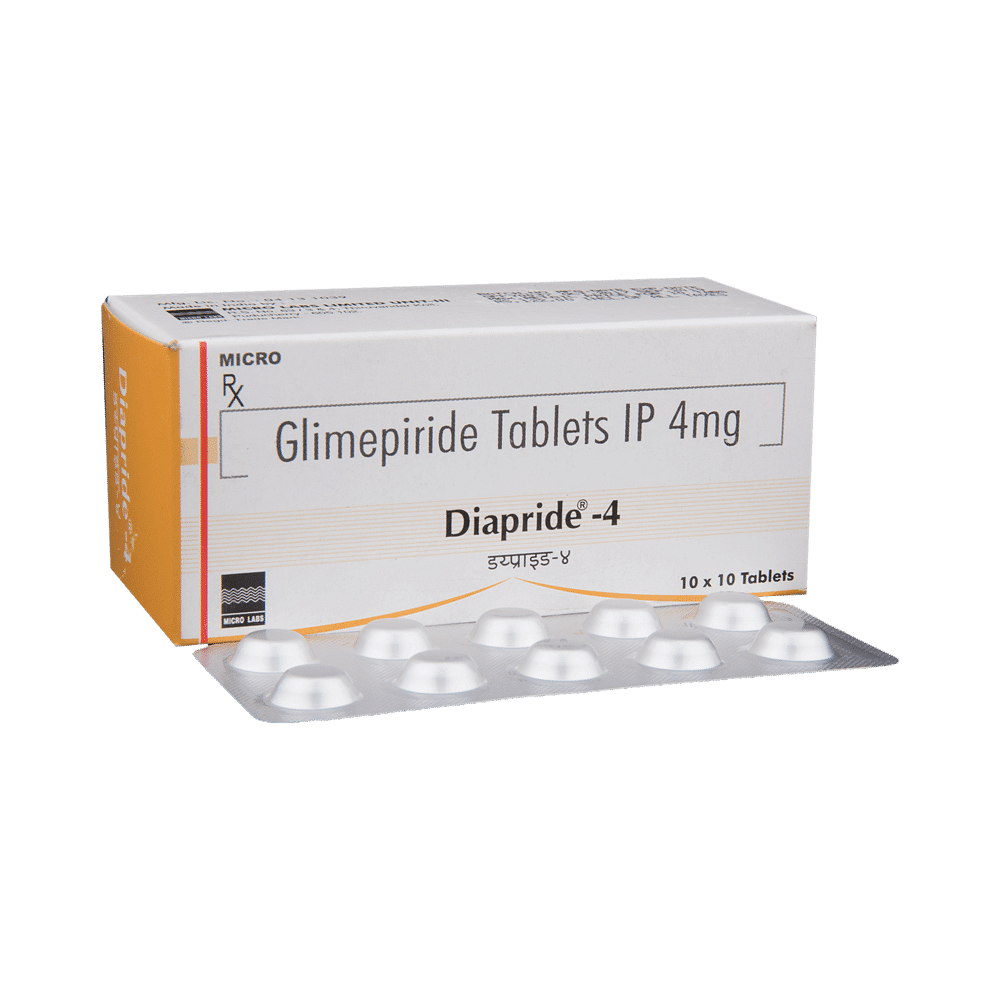
Diapride-4 Tablet
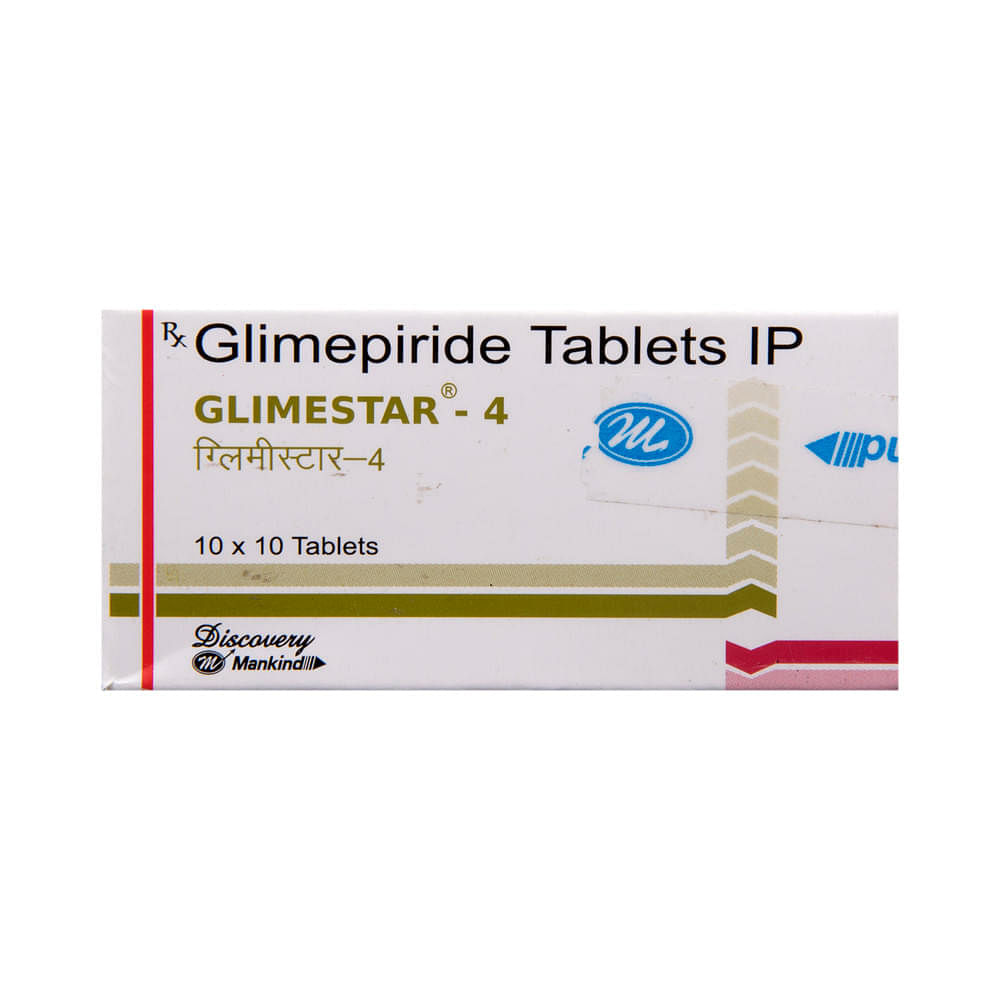
Glimestar 4 Tablet
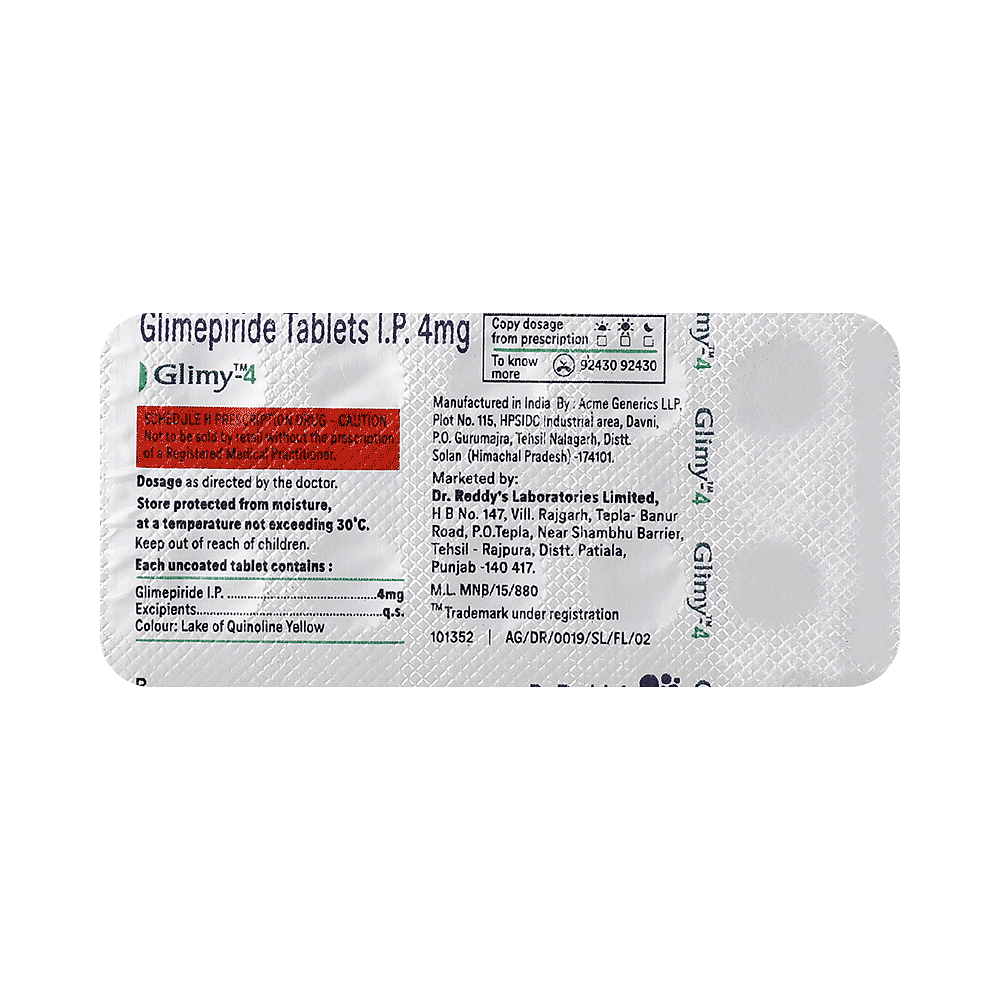
Glimy 4 Tablet
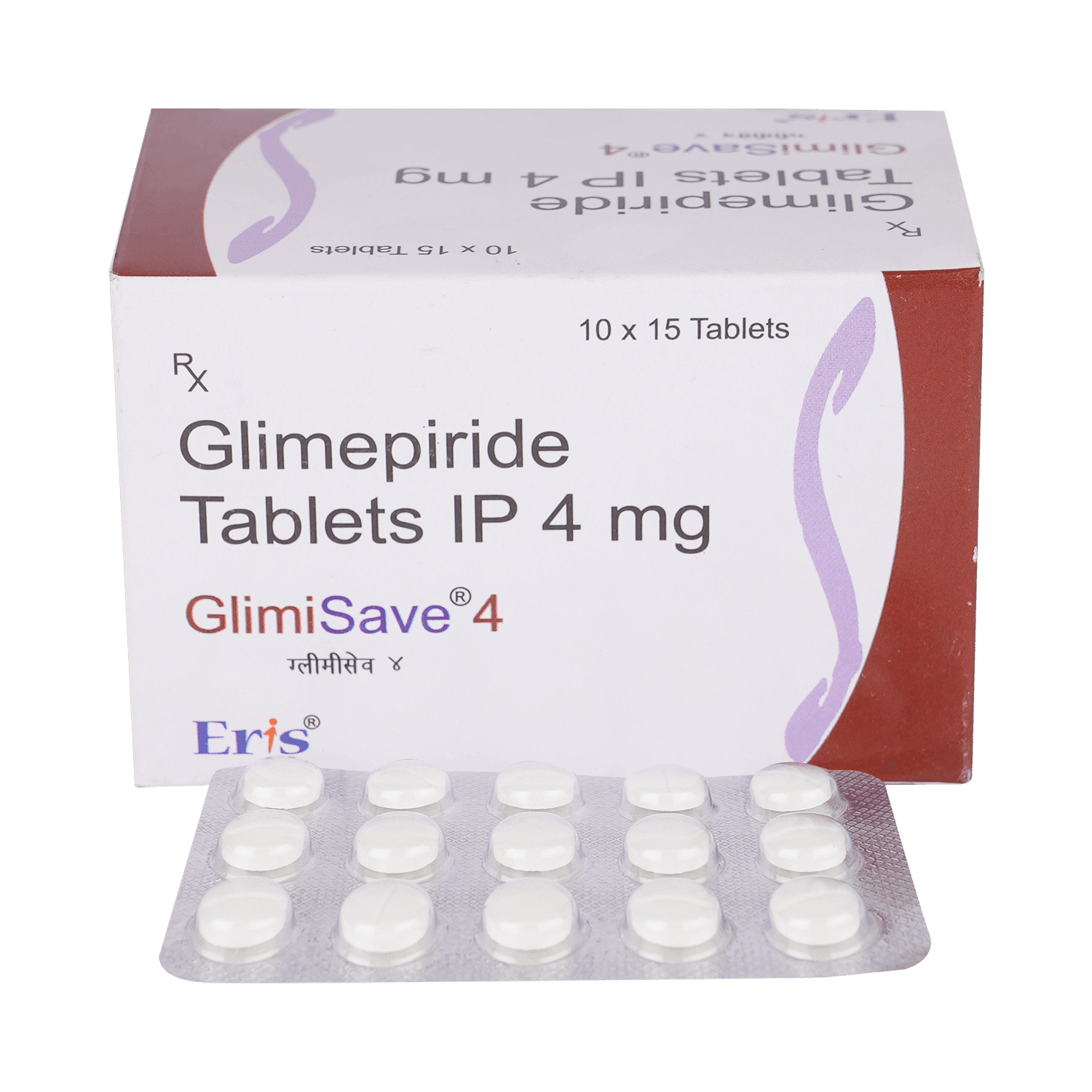
Glimisave 4 Tablet
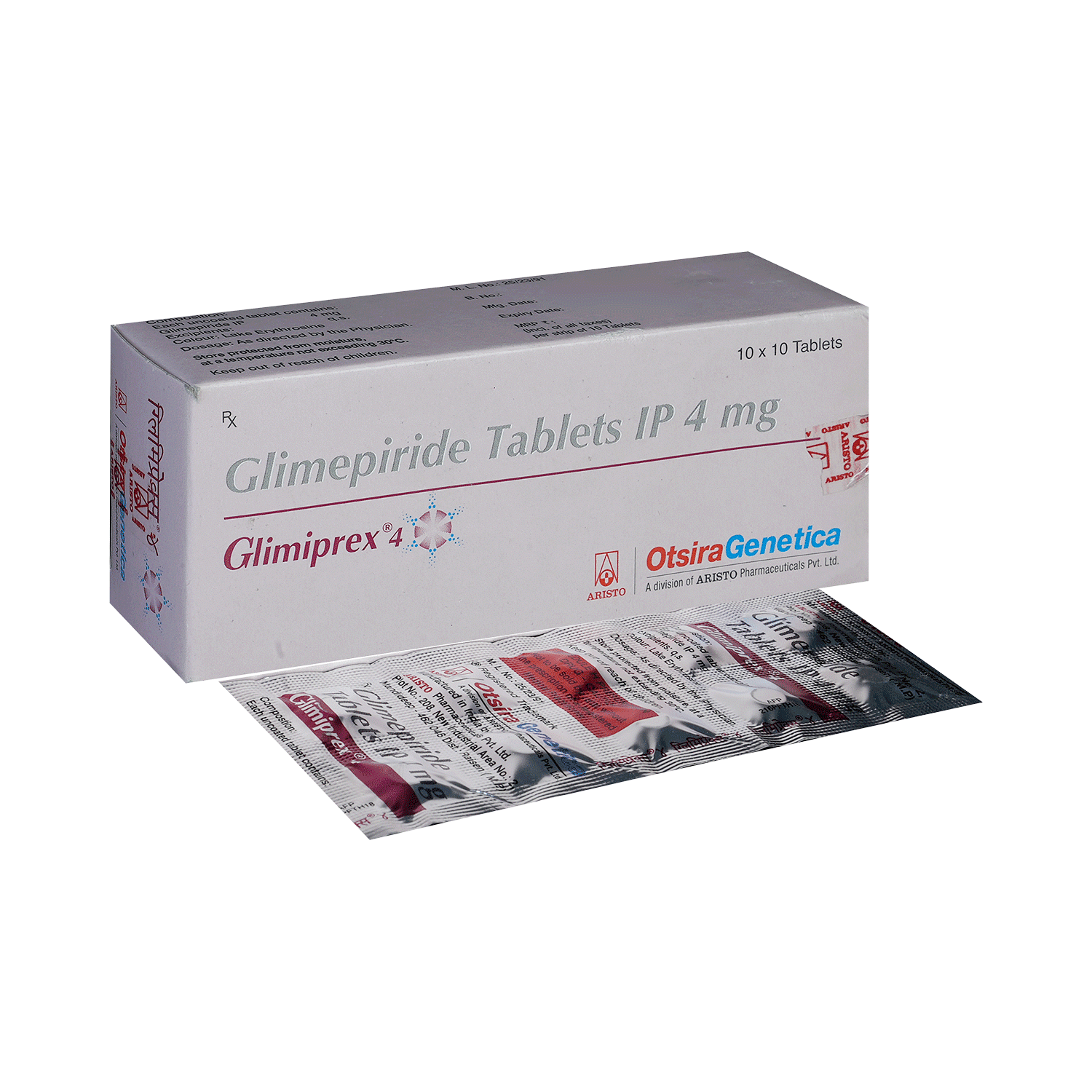
Glimiprex 4 Tablet
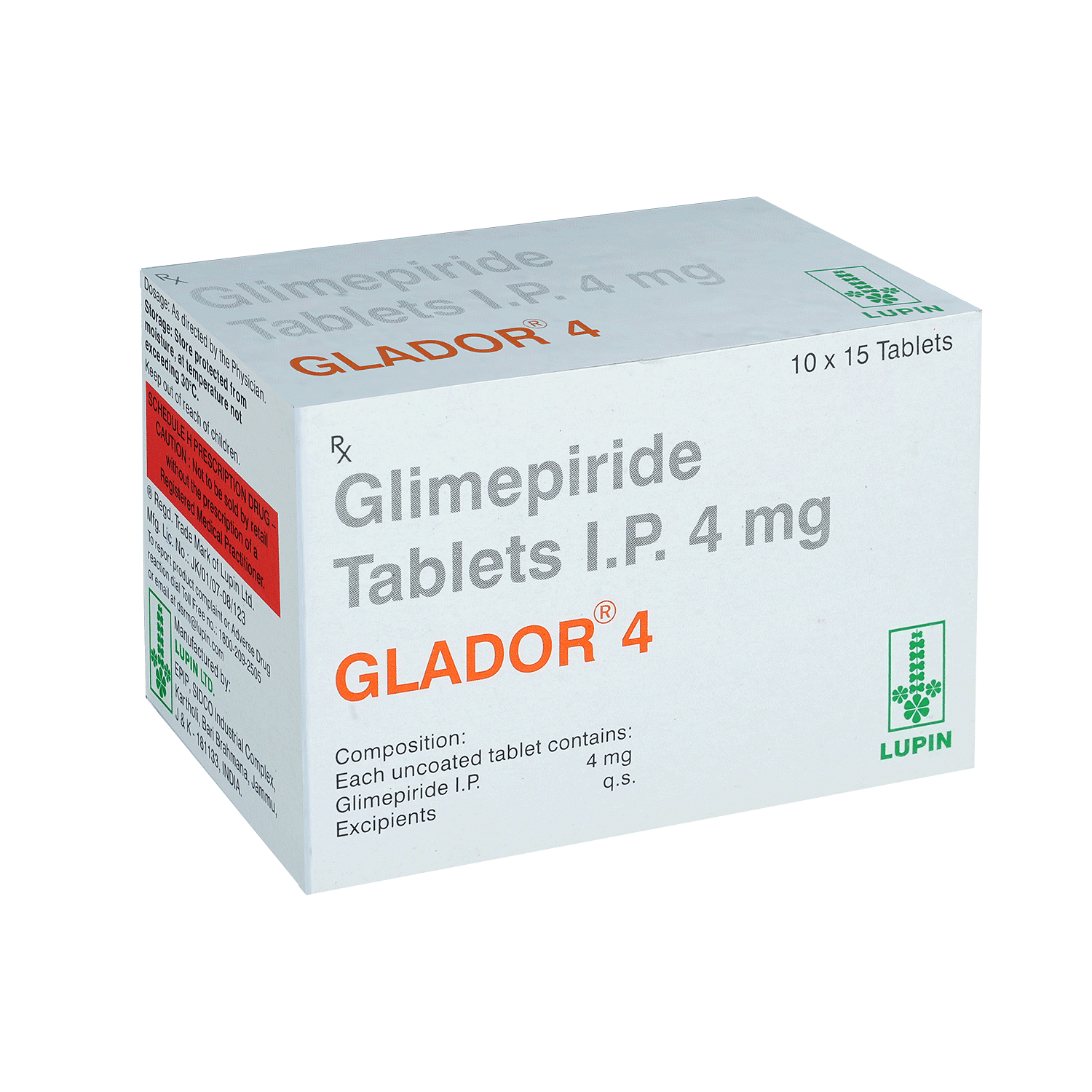
Glador 4 Tablet
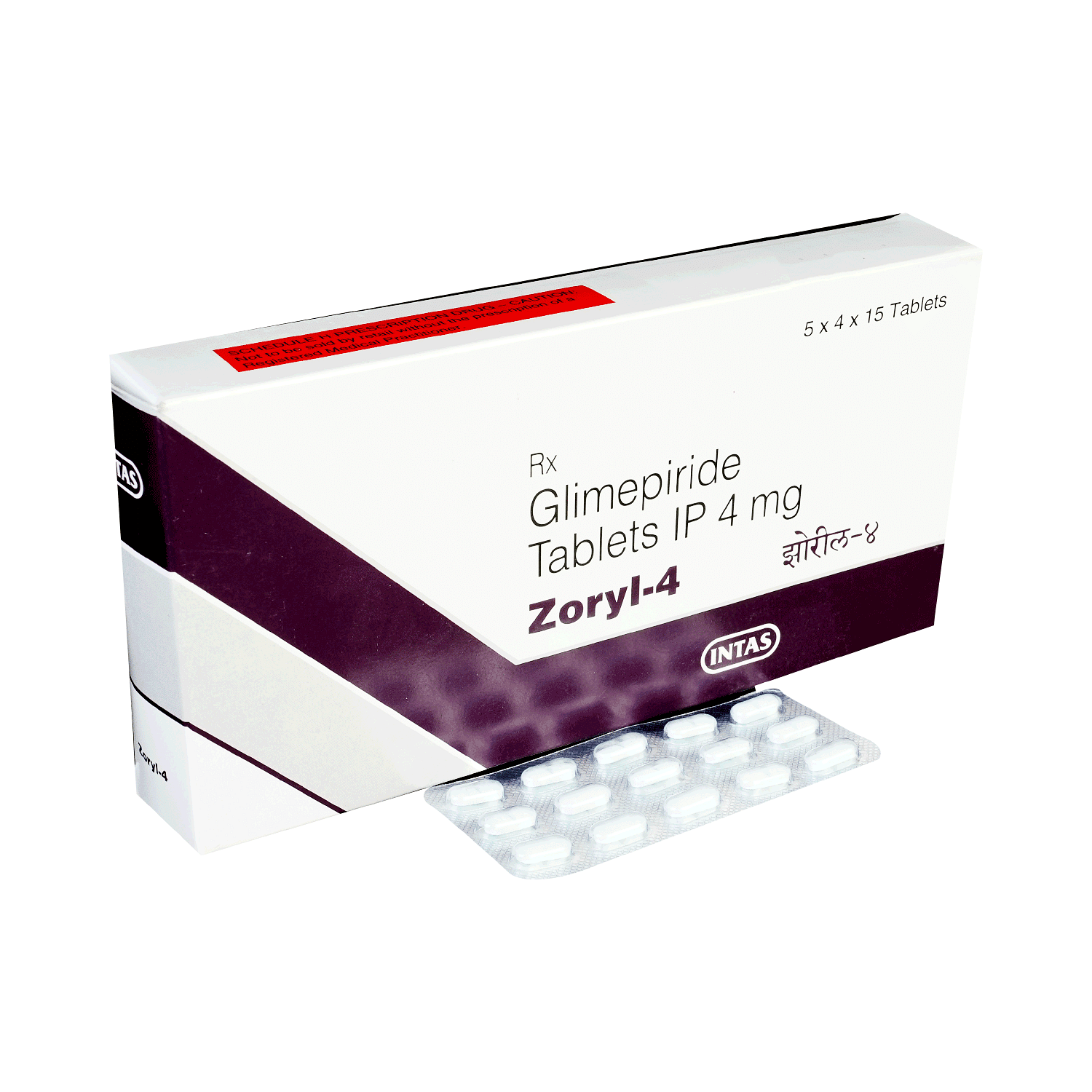
Zoryl-4 Tablet

Glimigen-M 4mg Tablet

Glimicer 4mg Tablet

Magpride 4mg Tablet


